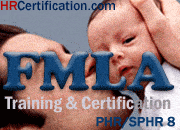Differences Between FMLA And PFL
The Family and Medical Leave Act (FMLA) guarantees an employee's right to take time off work for family and medical emergencies. It's an essential part of workers' rights in the United States and applies to every eligible worker in the country. However, it does not require the employer to pay the employee for their leave. In this article, you will learn about paid family leave (PFL) and how it differs from the rights outlined in the Family and Medical Leave Act.
Note: State governments have laws that may provide for more robust protections than what is provided by the FMLA. You may find another law more applicable to your situation than the FMLA.
What is the Family and Medical Leave Act (FMLA)?
The FMLA allows qualified employees to take up to 12 weeks of unpaid, job-protected (cannot be fired) leave every year. It also requires that any group health benefits be maintained during the vacation.
According to the FMLA, businesses must grant up to 12 weeks of unpaid leave to eligible employees each year for any of the following reasons:
- For the birth and care of an employee's newborn child;
- For the placement of a child for adoption or foster care with the employee;
- To care for an immediate family member (spouse, child, or parent) with a serious health condition;
- Or to take medical leave when the employee cannot work due to a severe health condition
Eligible employees include those who have worked for their employer for at least 12 months, have worked at least 1,250 hours in the last year, and work in a location where the firm employs 50 or more people within 75 miles.
The FMLA provides 'qualified' employees with time off to care for a serious physical sickness in themselves, their spouses, children, or parents, to care for a newborn, or to attend to other family emergencies. The leave must be taken under FMLA / CFRA or at the employer's discretion and policy.
What Is Paid Family Leave (PFL)?
Paid family leave compensates employees who have to take leave due to family circumstances.
Paid family leave acts are set at the state level. States that have paid family leave laws include:
- California
- New York

- Colorado
- Delaware
- Connecticut
- Massachusetts
- Maryland
- New Jersey
- Oregon
- Rhode Island
- Washington State
Every state has different circumstances that they?ll compensate for, and every state has different compensation schemes for employees taking leave. The National Conference of State Legislatures shows which states provide family leave and what they will compensate for.
All state family leave programs are funded by tax revenue, split between employee-paid and employer-paid payroll taxes.
What Are The Differences Between The FMLA And PFL?
First, the FMLA is a federal law that applies to all 50 states. Paid family leave only applies to states with laws requiring it.
The FMLA does not require employers to compensate employees who are taking leave. It only requires that eligible employees be allowed to take unpaid leave without losing their jobs. PFL specifies how employees are compensated for taking family leave.
Paid family leave is not the same as paid sick leave. Paid sick leave, which applies in 16 states, refers to time off for health reasons.
PFL and FMLA may run concurrently if the leave qualifies for both. PFL does not grant ?extra? leave except where specified.
To learn more about how FMLA and PFL apply to your workplace, check out our specialized training: FMLA Training & Certification Program
HR Certification Programs
HRCertification.com provides programs that present you as an expert in regulatory matters related to human resources. Our certifications are used in large and small companies and can help you grow your career as an HR professional. Check out our
HR certification programs today!
